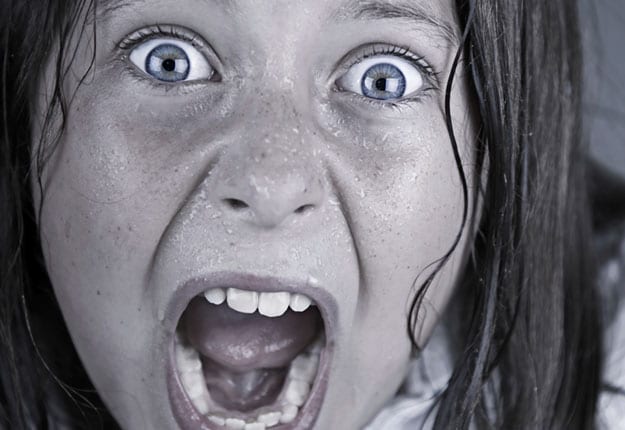Expert Tips on Helping Your Child’s Sleep Terrors
What is a night terror?
Those of you who have witnessed a child’s night terror will know how they came to be named. The child suddenly wakes from sleep in a confused and very frightened state, showing physical signs of panic such as sweating, rapid breathing and an elevated heart rate. Often the child will thrash around, scream, appear very distressed and seem unaware of their surroundings or of your efforts to comfort them. They may not even recognise you and this is because, even though their eyes are open, your child is actually still in a deep sleep state. These episodes can last for up to forty minutes before the child returns to a restful sleep with no memory of the event the next day. Night terrors appear so frightening however that you as a parent are often left shocked and wide-eyed for considerably longer. It’s important to reassure yourself that night terrors are common and are not at all harmful for your child.
Night terrors sometimes run in families. They occur most often in the 2 to 7 year age group and more often in boys although can also occur in girls, in older children and even, rarely, in adults. Episodes seem to occur more frequently when children also have a sleep disorder such as obstructive sleep apnoea.
Night terrors are different from nightmares and are not as common. Night terrors are episodes of arousal occurring during ‘deep sleep’ or ‘slow wave sleep’. Because we get most of our deep sleep early in the night, episodes tend to occur during the first third of the night. In contrast, nightmares occur during rapid eye movement sleep (REM sleep or ‘dream sleep’) much later – generally in the early hours of the morning.
Sometimes it’s possible to identify triggers such as high fevers, being overtired and emotional stress on the previous day. These are useful to consider since addressing these triggers prevents further episodes for some children. In general though, night terrors do not usually require further investigation or treatment and there is no association between childhood night terrors and future mental health problems. Most often kids simply grow out of them.
How you can best help your child
Because your child is still asleep during a night terror, it’s best to avoid waking them up but to still ensure their safety. Some children will run away from their beds during an episode so you’ll need to make sure they don’t inadvertently hurt themselves by bumping into things. Just gently guide your child back towards their bed, tuck them in, reassure and comfort them and they will soon settle back to sleep. If your child won’t let you comfort them, be sure to still sit nearby to soothe them with your words and presence while making sure they remain safe. If a child is woken during an episode they may take longer to settle as they will wake disorientated and confused.
If your child’s night terrors are occurring frequently and at the same time each night and you’ve tried addressing possible triggers, it might be worth trying ‘scheduled awakening’ – waking your child 15 to 30 minutes before you’re expecting an episode. Keeping your little one awake for a few minutes for a quiet chat, song or drink of water before allowing them to go back to sleep may help to disrupt your child’s sleep cycle enough to prevent another episode. As always though, if you’re still concerned about your child’s night terrors, seek the advice of your General Practitioner.




















9:30 pm
9:33 am
10:48 pm
3:40 pm
11:25 pm
8:58 pm
2:58 pm
12:40 pm
2:06 pm
9:24 am
9:47 pm
2:54 pm
11:12 am
4:21 pm
3:48 pm
4:58 pm
8:33 am
10:39 pm
9:41 pm
3:03 pm
- 1
- 2
- …
- 6
- »
Post a commentTo post a review/comment please join us or login so we can allocate your points.